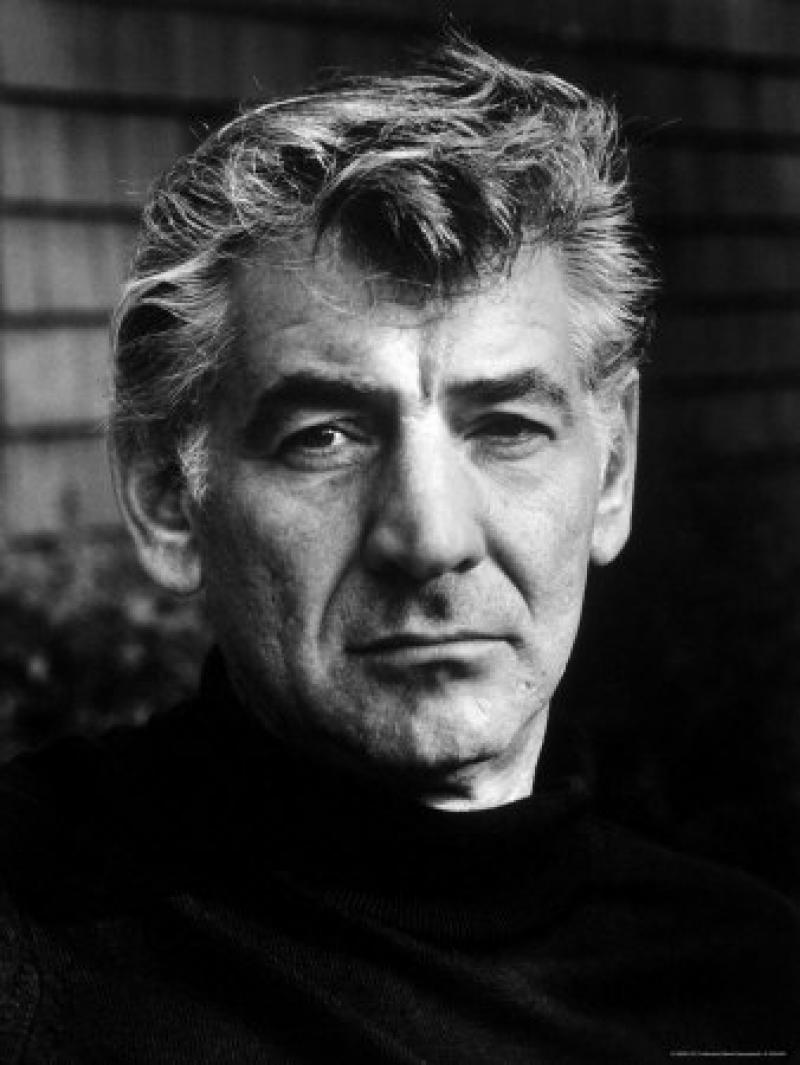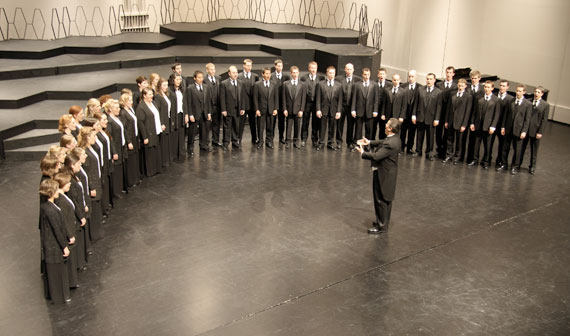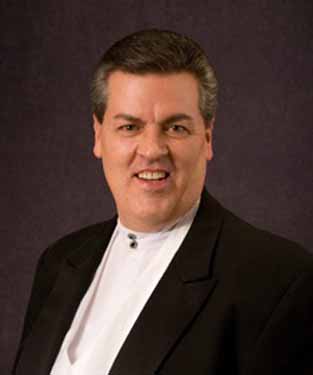Brigham Young University Singers, St John's Smith Square | reviews, news & interviews
Brigham Young University Singers, St John's Smith Square
Brigham Young University Singers, St John's Smith Square
American choral classics brought to life by an all-American ensemble

Brigham Young University in Utah is the largest private university in America, and is probably best known for its affiliation with The Church of Jesus Christ of Latter-day Saints, AKA the Mormons. What’s less commonly known is that the university also has a choir (four different choirs, in fact) that is among the finest collegiate ensembles in the US.
I struggle to imagine a British ensemble of the calibre of the BYU Singers featuring programme biographies of its individual singers that include such information as to their courage, positivity of attitude, infectious smile, or qualities as a husband, or for that matter introducing pieces by recalling personal experiences of faith or emotion. But once it becomes clear that this isn’t your average choral setup, then it becomes a lot easier to accept this group on their own terms – as far in standard from your average university chamber choir as they are in attitude.
 There’s a warmth and a joy here that starts with the smiles that embrace you from the stage and only grows through the singing. Immaculately turned-out, the ensemble’s presentation puts many of the UK’s professional ensembles to shame, as does their evident and unabashed delight in what they do.
There’s a warmth and a joy here that starts with the smiles that embrace you from the stage and only grows through the singing. Immaculately turned-out, the ensemble’s presentation puts many of the UK’s professional ensembles to shame, as does their evident and unabashed delight in what they do.
Starting with Bernstein (in so many ways the father of the contemporary American choral style as we know it), the programme took us from the classic (Barber, William Billings) to the inevitable (Whitacre, Lauridsen) via such unfamiliar figures as George Whitefield Chadwick and Adolphus Hailstork, even taking a small detour into musical theatre and a Sondheim number.
The real strength of the BYU Singers under their director Dr Ronald Staheli (pictured below) is their blend. Soft-grained basses set the curve for a mesh of sound that has surely evolved to suit the characteristic warmth and density of so much American choral music. There’s no doubt they do this excellently well, as Whitacre’s Water Night and Lauridsen’s Sure on this Shining Night proved, but it would have been lovely to see some of their more rhythmic, contrapuntal skills on show during the main body of the programme rather than banished to the encores.
 As it was, some excellent singing risked being lost in monotony as mezzo-forte consonance blended into mezzo-forte consonance, with even Sondheim – master of the acid dissonance – represented by the ghastly sentimentality of Children will Listen. Cloying sweetness aside however there was much to enjoy. The low basses anchored the Whitacre with resonant delicacy, while sopranos set the tone for the sensitively-phrased unisons of Mack Wilberg’s My Shepherd Will Supply My Need, but it was the mezzos who came close to stealing the show with a strikingly mature, rounded sound so much in the contrast to the straight (too often gripped tone) of many English groups.
As it was, some excellent singing risked being lost in monotony as mezzo-forte consonance blended into mezzo-forte consonance, with even Sondheim – master of the acid dissonance – represented by the ghastly sentimentality of Children will Listen. Cloying sweetness aside however there was much to enjoy. The low basses anchored the Whitacre with resonant delicacy, while sopranos set the tone for the sensitively-phrased unisons of Mack Wilberg’s My Shepherd Will Supply My Need, but it was the mezzos who came close to stealing the show with a strikingly mature, rounded sound so much in the contrast to the straight (too often gripped tone) of many English groups.
Dynamics made a late (but striking) appearance for the climaxes of Hailstork’s spiritual-based Crucifixion, and though I would have liked more pace from both Bernstein’s Sanctus and Carlyle Sharpe’s Laudate Nomen there was no faulting the purity of intonation and balance of double-choir anthem O vis aeternitatis (Frank Ferko) with its waves of imitation and organum-like chanting.
Britain may still offer some of the finest professional choirs in the world, but for university chamber choirs the US outdoes us significantly – something it’s easy to forget when lauding the achievements of the chapel choirs of Trinity Cambridge or King’s College London. Watching the well-drilled, fervent singing of the BYU Singers it makes it rather hard to return to the copy-bound, last-minute excellence of some of our equivalents here. I might not be a convert to their faith, but as far as music goes the choir of Brigham Young have a new believer.
Explore topics
Share this article
Add comment
The future of Arts Journalism
You can stop theartsdesk.com closing!
We urgently need financing to survive. Our fundraising drive has thus far raised £49,000 but we need to reach £100,000 or we will be forced to close. Please contribute here: https://gofund.me/c3f6033d
And if you can forward this information to anyone who might assist, we’d be grateful.

Subscribe to theartsdesk.com
Thank you for continuing to read our work on theartsdesk.com. For unlimited access to every article in its entirety, including our archive of more than 15,000 pieces, we're asking for £5 per month or £40 per year. We feel it's a very good deal, and hope you do too.
To take a subscription now simply click here.
And if you're looking for that extra gift for a friend or family member, why not treat them to a theartsdesk.com gift subscription?
more Classical music
 Echo Vocal Ensemble, Latto, Union Chapel review - eclectic choral programme garlanded with dance
Beautiful singing at the heart of an imaginative and stylistically varied concert
Echo Vocal Ensemble, Latto, Union Chapel review - eclectic choral programme garlanded with dance
Beautiful singing at the heart of an imaginative and stylistically varied concert
 Scott, Irish Baroque Orchestra, Whelan, RIAM, Dublin review - towards a Mozart masterpiece
Characteristic joy and enlightenment from this team, but a valveless horn brings problems
Scott, Irish Baroque Orchestra, Whelan, RIAM, Dublin review - towards a Mozart masterpiece
Characteristic joy and enlightenment from this team, but a valveless horn brings problems
 Classical CDs: Voice flutes, flugelhorns and froth
Baroque sonatas, English orchestral music and an emotionally-charged vocal recital
Classical CDs: Voice flutes, flugelhorns and froth
Baroque sonatas, English orchestral music and an emotionally-charged vocal recital
 Kanneh-Mason, Britten Sinfonia, Shave, Milton Court - a grin and a big beaming smile
A pair of striking contemporary pieces alongside two old favourites
Kanneh-Mason, Britten Sinfonia, Shave, Milton Court - a grin and a big beaming smile
A pair of striking contemporary pieces alongside two old favourites
 theartsdesk at the New Ross Piano Festival - Finghin Collins’ musical rainbow
From revelatory Bach played with astounding maturity by a 22 year old to four-hand jazz
theartsdesk at the New Ross Piano Festival - Finghin Collins’ musical rainbow
From revelatory Bach played with astounding maturity by a 22 year old to four-hand jazz
 First Person: Manchester Camerata's Head of Artistic Planning Clara Marshall Cawley on questioning the status quo
Five days of free events with all sorts of audiences around Manchester starts tomorrow
First Person: Manchester Camerata's Head of Artistic Planning Clara Marshall Cawley on questioning the status quo
Five days of free events with all sorts of audiences around Manchester starts tomorrow
 Goldscheider, Brother Tree Sound, Kings Place review - music of hope from a young composer
Unusual combination of horn, strings and electronics makes for some intriguing listening
Goldscheider, Brother Tree Sound, Kings Place review - music of hope from a young composer
Unusual combination of horn, strings and electronics makes for some intriguing listening
 theartsdesk Q&A: composer Donghoon Shin on his new concerto for pianist Seong-Jin Cho
Classical music makes its debut at London's K-Music Festival
theartsdesk Q&A: composer Donghoon Shin on his new concerto for pianist Seong-Jin Cho
Classical music makes its debut at London's K-Music Festival
 Helleur-Simcock, Hallé, Wong, Bridgewater Hall, Manchester review - moving lyricism in Elgar’s concerto
Season opener brings lyrical beauty, crisp confidence and a proper Romantic wallow
Helleur-Simcock, Hallé, Wong, Bridgewater Hall, Manchester review - moving lyricism in Elgar’s concerto
Season opener brings lyrical beauty, crisp confidence and a proper Romantic wallow
 Kohout, Spence, Braun, Manchester Camerata, Huth, RNCM, Manchester review - joy, insight, imagination and unanimity
Celebration of the past with stars of the future at the Royal Northern College
Kohout, Spence, Braun, Manchester Camerata, Huth, RNCM, Manchester review - joy, insight, imagination and unanimity
Celebration of the past with stars of the future at the Royal Northern College

Comments
As a member of BYU Singers, I
We Mormons enjoy your praise
Amen to what Jonnie said. I